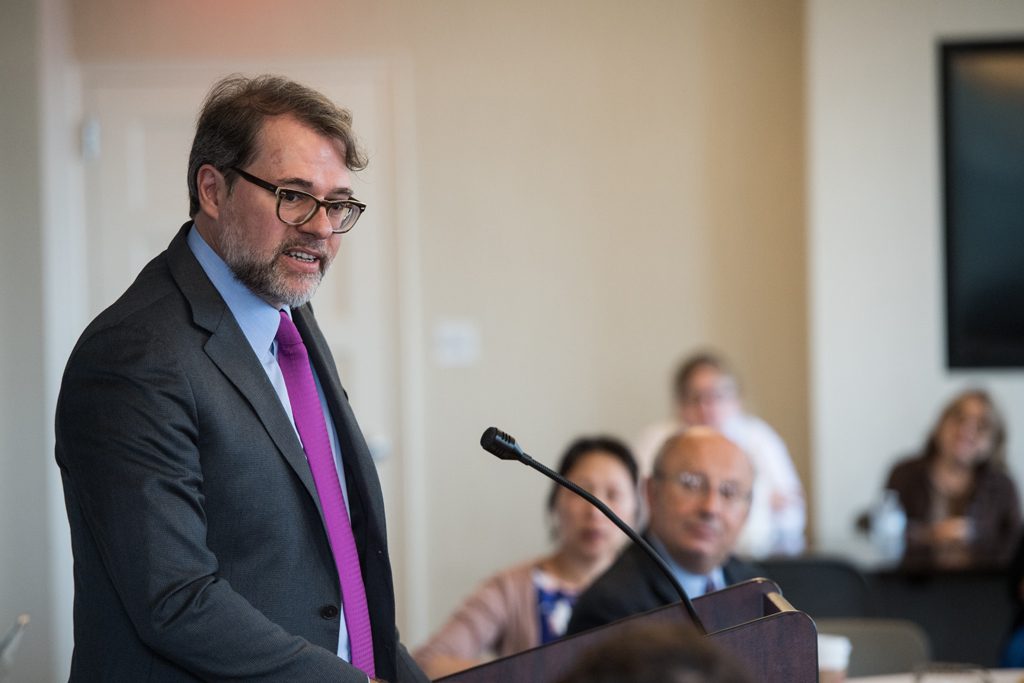Justice Dias Toffoli, one of the youngest justices to serve on the Brazilian Supreme Court, reached deep into his nation’s and America’s legal histories to provide a BC Law lecture July 14 explaining democracy in Brazil as seen through the lens of his country’s Supreme Court.
Touching on everything from the civil law tradition to the influence of the American and Austrian models on the Brazilian hybrid system of judicial review, from the impact of the monarchy in the earlier history of Brazil to contemporary political currents, Justice Toffoli endeavored to arrive at what he called a “pragmatist’s” understanding of the court’s ever-changing roles over time.
BC Law Professor Paulo Barrozo, who, in introducing Toffoli, called the Brazilian Supreme Court one of the most important and innovative constitutional courts in the world, explained the significance of Justice Toffoli’s reflections: “The Brazilian constitution of 1988 codifies the historical lessons and gains of the last 200 years or so on the rule of law, separation of powers, democracy, rights, and the welfare state. Those lessons are now tested throughout the world, and Brazil is a dramatic case in point.”
Justice Toffoli guided the audience through the historical, comparative, and even some of the technically arcane aspects of his court’s enforcement of a constitution that incorporates those lessons and gains in a highly diverse and complex country.
Appointed to the Court in 2009, Justice Toffoli was Brazil’s Solicitor General from 2007 to 2009. From 2014 to May 2016, he served concurrently as Chief Justice of the Supreme Electoral Court, the institution that conducts and oversees the well-admired Brazilian voting system. At the Supreme Court, Justice Toffoli and his fellow justices have been at the center of the extraordinary legal and political challenges currently facing Brazil. He is a graduate of the Faculty of Law of the Universidade de Sao Paulo.
Also attending the event were Toffoli’s Supreme Court colleague, Justice Luis Roberto Barroso, Consul General of Brazil Gilvânia Maria de Oliveira, Deputy Consul-General Breno Hermann, and several other dignitaries.
“Here at Boston College Law School we develop some of the leading, cutting edge thinking about the challenges facing law and society in our increasingly connected and complex world,” Barrozo said. “Conversations such as the one we were engaged in with Justice Toffoli is part of what makes this Law School a hub for this kind of ambitious legal thinking.”
Photograph of Justice Toffoli by Christopher Soldt


